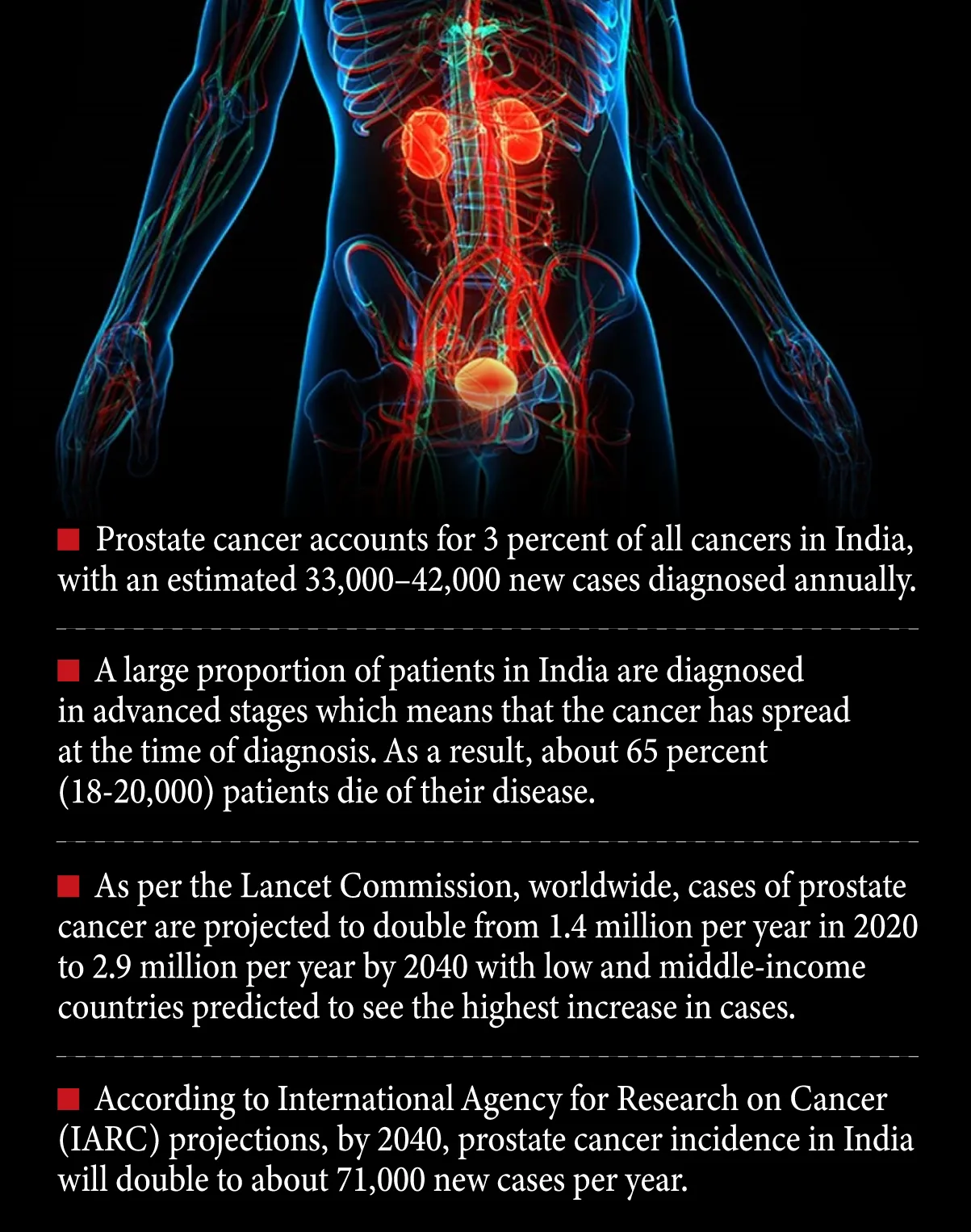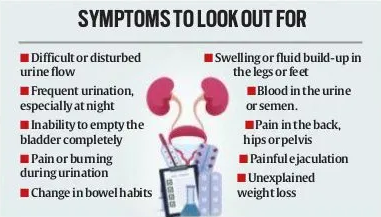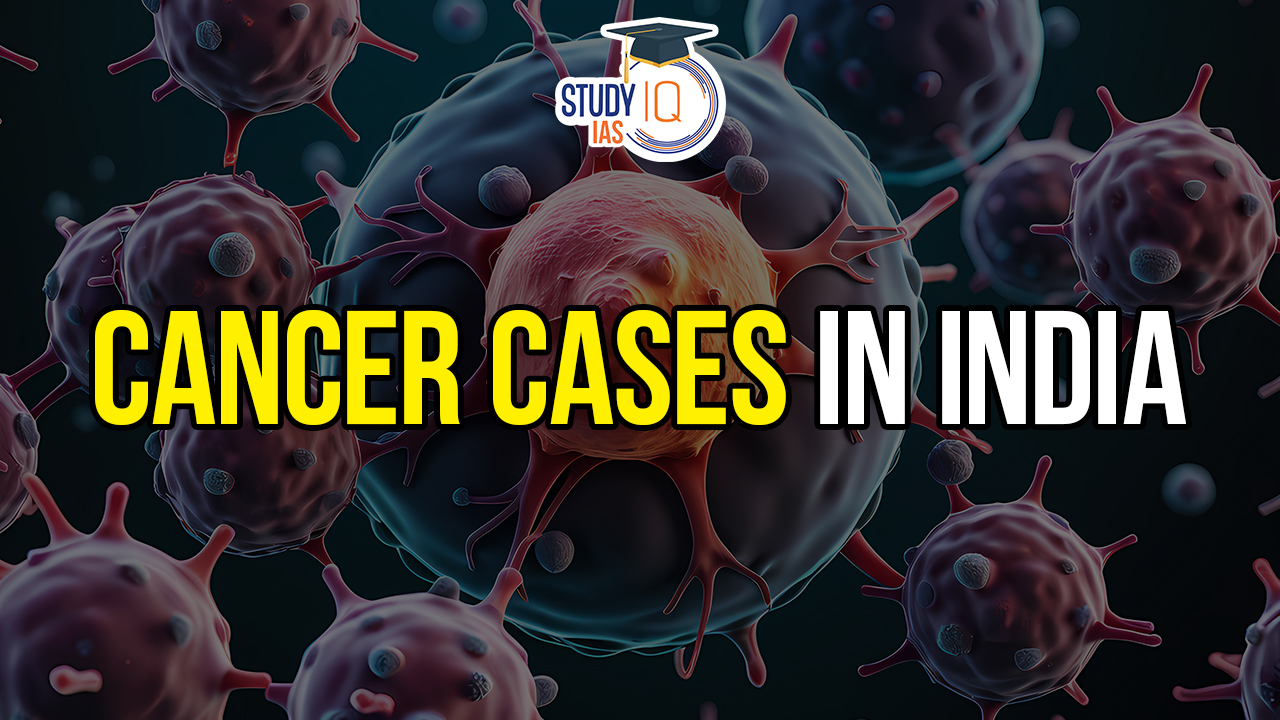Table of Contents
Context: As per the Lancet Commission report, cases of prostate cancer are projected to double from 1.4 million per year in 2020 to 2.9 million per year by 2040 worldwide, with low and middle-income countries predicted to see the highest increase.
Overview of Prostate Cancer in India
- Incidence Projection: Prostate cancer cases in India are expected to double, reaching approximately 71,000 new cases annually by 2040.
- Current Statistics: Prostate cancer represents 3% of all cancers in India, with an estimated 33,000 to 42,000 new cases diagnosed each year.
- Late Diagnosis: A significant portion of Indian men are diagnosed at advanced stages, leading to a high mortality rate of about 65% (18,000-20,000 patients).
Lancet Commission Report Findings
- Global Projection: Prostate cancer cases worldwide are projected to increase from 1.4 million in 2020 to 2.9 million by 2040.
- Increased Mortality: In 2020, prostate cancer was the fifth leading cause of cancer death among men globally, with approximately 375,000 deaths.

Importance of Early Detection and Awareness
- Prevention Strategy: Regular screening for men over 60 is recommended to detect cancer early, similar to breast cancer screenings for women after 40.
- Screening Methods: Suggested screening includes Prostate-Specific Antigen (PSA) tests and possibly digital rectal examinations for older men or those showing symptoms.

We’re now on WhatsApp. Click to Join
Rise in Cancer Cases: Contributing Factors
- Demographic Changes: Ageing populations and increased life expectancy contribute to the rising number of older men, thereby increasing prostate cancer cases.
- Health Checkups: Corporate health checkups, including PSA tests, have contributed to the increase in diagnosed cases.
- Risk Factors: Age, genetics, smoking, obesity, and poor diet/lifestyle are identified as main risk factors.
Expanding Therapies and Diagnostics
- Radiotherapy Units: The WHO recommends one megavoltage radiotherapy unit per million people
- India needs approximately 600 additional units to meet cancer treatment needs.
- Access to Treatment: Increased access to radiotherapy in urban areas and within government health schemes, but the poorest sections still have limited access.
- Pain Management: Challenges with opioid use for pain relief due to stringent regulations, with some improvement following legislative changes in 2014.
Recommendations
- MRI Scans and PSA Testing: Recommended for screening high-risk men in high-income countries.
- Improving Treatment Access: Need for expanded access to modern radiotherapy treatments and palliative care, including pain management with opioids.


 Utkal Divas 2025: Odisha Foundation Day ...
Utkal Divas 2025: Odisha Foundation Day ...
 NASA Parker Solar Probe Flies Closer to ...
NASA Parker Solar Probe Flies Closer to ...
 List of Military Exercises of India 2024...
List of Military Exercises of India 2024...





















